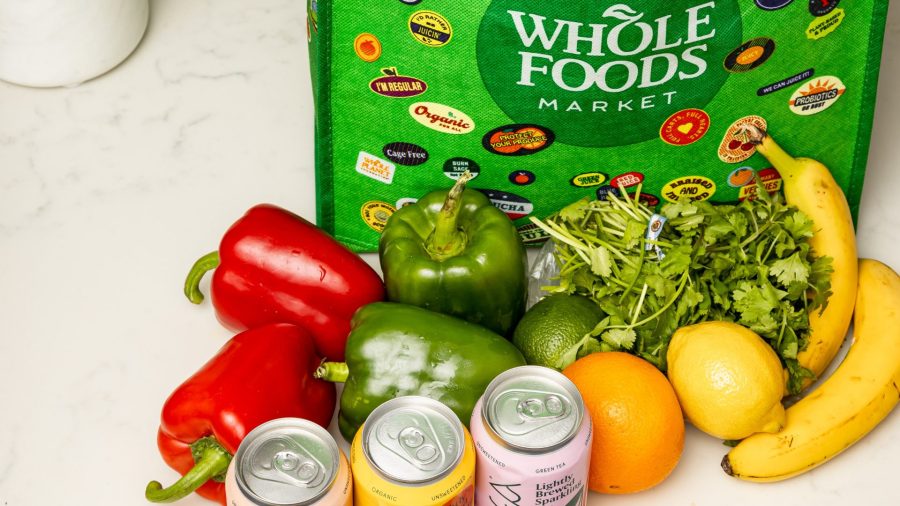Whole Foods Market’s Trends Council unveiled its seventh annual top 10 anticipated food trends for 2022.
“Last year, we saw tremendous pandemic-related shifts in grocery buying habits as the world adjusted to spending more time at home,” said Whole Foods Chief Marketing Officer Sonya Gafsi Oblisk in a press release. “As the food industry slowly adjusts to a new normal, we expect to see consumers prioritize food and drink products that deliver additional benefits… and products that support their sense of well-being.”
Here’s a closer look at what the council’s more than 50 Whole Foods Market team members expect to rise in popularity next year:
ULTRAURBAN FARMING
The indoor farming market has boomed over the past several years. In 2013, Whole Foods opened a pioneering store in Brooklyn with a Gotham Greens greenhouse on top. Since then, innovation in what’s also known as vertical farming has grown more and more.
The evolving form of agriculture has become a multibillion-dollar industry and is expected to reach $12.77 billion by 2026, growing at a compound annual growth rate of nearly 25%, according to Allied Market Research. The concept has “gone viral,” Dr. Dickson Despommier, a professor at Columbia University, told The Food Institute ahead of our July report on the topic.
A report by Integrative Economics found that the most ideal plants for vertical farming can thrive in a small, soil-free growing habitat and will produce prolifically or grow rapidly. Herbs and assorted leafy greens — including baby and microgreen varieties — are currently the most common crops grown in large-scale vertical farms.
REDUCETARIANISM
Many consumers who aren’t quite ready to give up meat are simply reducing consumption of animal products without cutting them out completely. In a new term Whole Foods is dubbing “reducetarianism,” consumers are also making animal products on the menu count, opting for premium grass-fed meat and pasture-raised eggs.
Whole Foods gives the example of products such as EPIC Provisions 100% Grass-Fed Bars and Applegate Well Carved Organic Meat & Veggie Burgers.
In our research about plant-based consumers, The Food Institute has found that many are doing so because of environmental factors. Consumers are seeking clean labels and products that align with environmental efforts.
BUZZ-LESS SPIRITS
Dialed-down spirits unsurprisingly made the Whole Foods list after a year of buzz around the topic.
Throughout the pandemic, demand for non-alcoholic beers, wines, and spirits increased, with consumers drinking most frequently while relaxing at home in the evening, reported beverage analysis firm IWSR. The no-alcohol category increased 4.5% over 2019 and 2020 across ten key markets, while the low-ABV segment declined 5.5%.
Such beverages are predominantly consumed by people seeking to moderate their alcohol consumption, with health-conscious Millennials driving the mindful drinking movement.
FUNCTIONAL FIZZ
Another type of drink that made the list is the functional beverage—particularly the fizzy kind. People are looking for sparkling drinks that not only taste good but also offer ingredients that balance out the sweetness, according to Whole Foods.
This includes soda with probiotics and fizzy tonics with added prebiotics, botanicals, and more.
This summer, The Food Institute spoke to Ben Goodwin, co-founder and CEO at functional soda brand Olipop, about growth in the market.
“I think it’s a combination of two forces,” said Goodwin. “Our health care system is generally overloaded and many people suffer from health issues, many of which are preventable or addressable through lifestyle and diet.”
OTHER NOTABLE TRENDS
Other, newer, trends to watch out for include:
- Yuzu: A lesser-known citrus mainly cultivated in Japan, Korea and China that is taking the culinary world by storm.
- Grains that give back: Grains grown via agriculture practices and farming processes that help address soil health.
- Sunflower Seeds: Sunflower seeds are branching out of the ballpark and sliding into crackers, ice creams and creamy cheeses.
- Moringa: Often called the “miracle tree,” moringa is traditionally used as an herbal remedy in India, Africa and beyond. It is gaining steam in the U.S. as matcha’s latest alternative.
- Turmeric: Called “the golden spice,” turmeric has been used for centuries in Ayurveda and traditional Chinese medicine, and has become popular in the U.S. as a dietary supplement.











